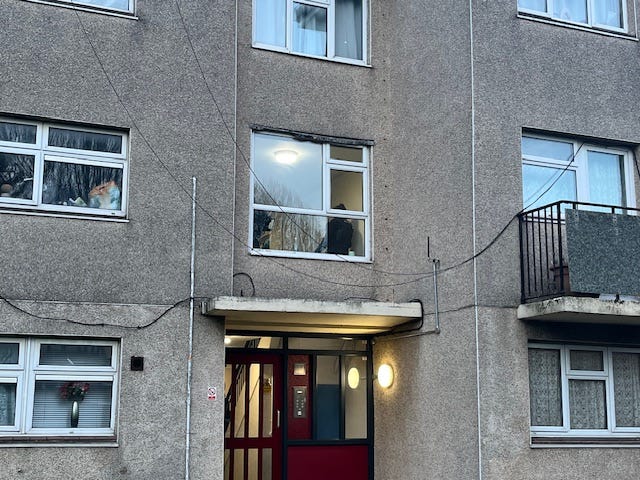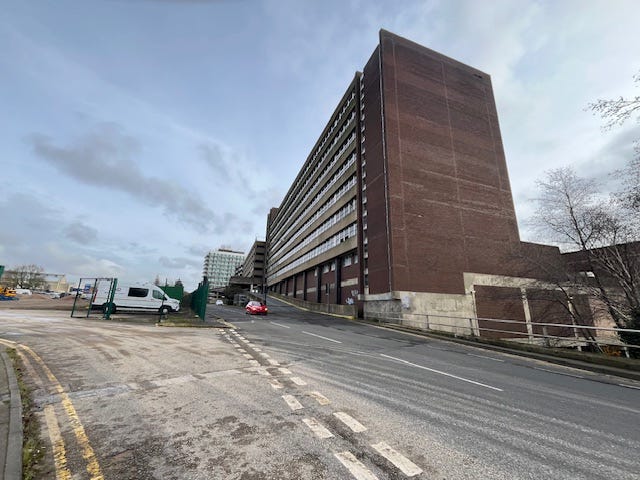‘It’s bad, bad, bad’
Crisis at council’s housing company as thousands of homes declared not up to standard, fire safety assessments are practically worthless and authority has to report itself to the housing regulator
By Sarah Ward
Sign up here for all our news.
Staff at West Northamptonshire Council (WNC) turned on their computers on Tuesday morning to find a message from chief executive Anna Earnshaw telling them of troubles within the authority’s housing company Northamptonshire Partnership Homes (NPH). She said after discovering some of the housing stock was not meeting safety standards the council had referred itself to the Regulator of Social Housing. Tenants in the council’s 11,500 homes had been informed that the ‘majority’ of homes were not affected. The chief executive reassured staff that immediate action was underway to remedy the situation and essential safety checks such as fire risk assessments were being done.
Twenty minutes later the local media received a press release from council leader, Cllr Adam Brown explaining the issues had become known when stock conditions were being carried out and it became clear that many homes were not up to standard.
He said:
“Everyone deserves safe, high-quality housing and we recognise that this is not being delivered to some of our tenants. This is simply not good enough and we are sorry that standards have fallen short of what the Council and tenants should expect. We are now waiting to hear the formal outcome of the Regulator’s investigation and once we do will be open and transparent about their judgement and what is being done to resolve this.”
That morning a report was also published as part of the cabinet papers for next week’s meeting. It detailed the full extent of the issues, shockingly revealing that the housing company had provided false information to the parent authority on at least two recent occasions, including in its annual report to the authority in June.
The report said:
“Recent changes in the legislation and regulations have seen an increased focus on decent homes standards and in the legal responsibilities of the Council. Both have led to the Council strengthening its monitoring and oversight capacity and seeking more detailed information on the conditions of its housing stock in relation to the standards required by the Regulator of Social Housing under the consumer standards.
“It has become clear to the Council through this process that there are serious shortcomings in relation to a number of standards linked to Health and Safety and that past reporting may not have accurately reflected the true level of compliance across the Councils housing stock.”
The number of homes that do not meet the decent homes standards stands at 2,348, eight times what had been reported. That’s more than a fifth of homes in the housing stock and there are still 3,000 more homes to survey. The overall figure will not be known until December.
Another serious issue is fire safety.
The report says:
“In the Q1 2024-25 Performance report presented to Cabinet in September 2024, NPH reported that the percentage of homes for which all required fire risk assessment had been carried out was 100%. Following the meeting of Cabinet, NPH provided the Council with a report which stated that this figure was in fact incorrect, and there were 180 overdue fire risk assessments and an additional 49 were set to expire in the next 90 days.”
“NPH has told the authority it is carrying out an internal investigation to find out how incorrect data was given to the council. NPH has now outsourced the fire safety assessments.
The report goes on to say:
“NPH has also advised the Council that the survey type used for fire risk assessments did not meet recommended regulatory standards. While that does not mean necessarily that there is an increased risk it is important that all assessments meet the required current standards and therefore the entire programme of fire risk assessments will need to be recompleted over the next 12 months.”
Besides the safety issues, the company has also been failing on large-scale social housing projects. An independent review carried out this summer found serious problems. It discovered: a lack of the full range of skills needed to deliver large complex sites; limited commercial acumen to manage the complexity of arrangements and supply chains; a number of significant technical errors had been made; lack of openness and transparency and a poor understanding of Homes England Affordable Homes Programme funding conditions.
The issues mean the authority will not deliver on its house build targets, leaving residents on the housing list in desperate need of homes waiting longer. The authority also says there is an ‘impact on the financial viability of the housing revenue account’ although this is not explained any further.
Notable projects that have been dropped are the Belgrave house scheme near Greyfriars and the development of housing at the former university campus.
The authority now says it will take over the running of projects.
It does not detail just how much the lack of competence may have cost the authority, but does say that earlier this year NPH was reporting a shortfall of more than £400,000 on the repairs budget. This has now significantly increased and there is also a shortfall next year but the report does not give the full figures. In September the chief executive told NPH it would be stepping in and would be sending over two senior officers to temporarily take over the roles of housing transformation manager and finance director.
NPH’s history
NPH was set up by the former Northampton Borough Council in 2015 as an arms length management company (ALMO) and Mike Kay was the chief executive of the company from its inception until May last year, when it was announced he had retired. However he has since come out of retirement and taken up the chair role at Wellingborough based Greatwell Homes. Steve Feast replaced him, coming from another ALMO.
The company’s board is led by Andrew Woods and WNC’s deputy chief executive Rebecca Purnell has sat on the board since 2021, alongside local business people and some councillors. Labour’s deputy leader Cllr Bob Purser is also a board member. WNC councillors Andy Kilbride and Nigel Hinch have also served on the board but left this year.
Board papers from the past 12 months show the issues have been growing.
The minutes detail that there had been more than 1,000 complaints from tenants in 2023-24, four times the national average. It also referenced large sums being spent on legal action, after tenants had pursued the council for late repairs. The ombudsman had also been involved and all cases had issues with how complaints were handled.
Speaking to NN Journal yesterday, Cllr Bob Purser said he thinks the transition to unitary had affected the oversight of the housing company and the new regulations had exposed the problems lying underneath.
He said he was ‘very cross’ when he found out about the data issue and said the problems had been discovered by the NPH chief executive who had employed external consultants to carry out reviews.
Asked who he thought was to blame for the issues he said:
“I am not sure blame is a useful term. Clearly there are people responsible. We have to have measures in place so it can never happen again. I certainly want to understand better how it happened
“Tenants deserve decent housing and this is not a good situation to be in. Could we [the board] have asked questions sooner? That is one of those questions really.”
He said it would be a ‘big challenge’ to resolve the situation but did not think it would be a good idea for the company to be taken back inside the council.
An inside source told NN Journal that the situation has caused much concern at the top level of WNC, with some heated senior leadership meetings.
They said:
“It is a lot worse than they have made it out to be - senior officers have sought their own personal legal advice. It is bad bad bad.”
What happens next?
The council has been in contact with the regulator since June and awaits a ruling.
The council report says:
“The Council is awaiting the outcome of the Regulator’s Quality Assurance Panel which will review the Council’s findings and data return. The review will result in a formal judgement by the regulator about our compliance with the consumer standards. The Council is however of the view that the issues detailed within this report represent serious failings and that we will need to work with NPH to drive significant improvements in their performance. We would also expect that the Council will be required to report more frequently to the Regulator on health and safety compliance and progress of our improvement plan, which has also been shared with them.
“It is also possible that the Regulator may issue the Council with a Regulatory notice or bring forward plans for a planned inspection. The Council will continue to fully engage and comply with all requirements set by the Regulator and ensure tenants are kept informed of any issues of non-compliance.”
Meanwhile, two independent councillors on the authority, Cllr Ian McCord and Cllr Paul Clark have submitted a motion to the next full council calling for the resignation of the NPH chief executive. WNC has told NN Journal that it does not have the power to remove the chief executive, instead this comes down to the board.
And the Labour leader Cllr Wendy Randall has also expressed her concern.
She said:
“Adequate housing is a fundamental human right, to know that we and our provider have failed thousands in our care with not supplying this is shameful.”
NN Journal has attempted to contact the NPH chief executive for comment.
Apologies, this post is later than usual. My day so far has involved getting on the wrong train, so hope you’re having a better day. Also this long form reporting takes time and effort so if you can subscribe to NN Journal and help pay for local journalism, please join here. No tie ins and a low monthly cost.







Good lord the failings within our public services keep getting worse and worse.
With WNC losing money hand over fist and services not being invested in just where is the money going?
A full audit of their accounts down to every single transaction needs to be carried out to see how they are so incapable of balancing the books and provide a basic service they can maintain
Moving housing into an ALMO was just a device for the beancounters to get some liabilities off the balance sheet and for the management to make a quick windfall by playing shops.
It was never going to improve the housing standards for tenants.
You can put lipstick on a pig, but its still a pig!